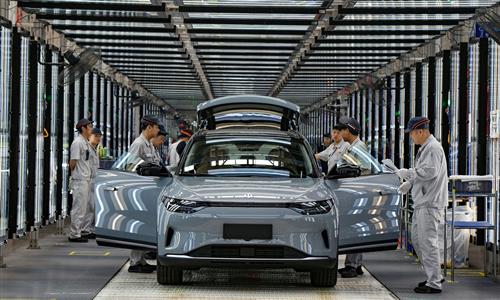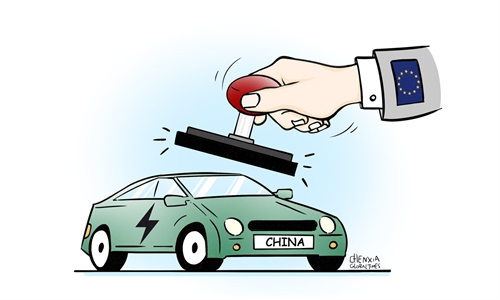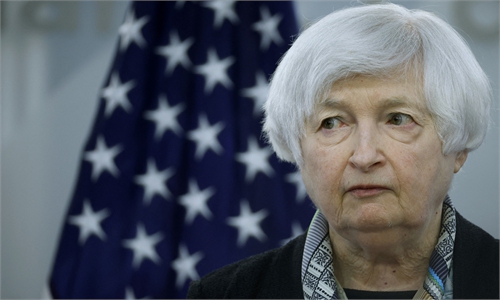Officials, business leaders at Summer Davos advocate for free trade, oppose US-led barriers targeting Chinese EVs
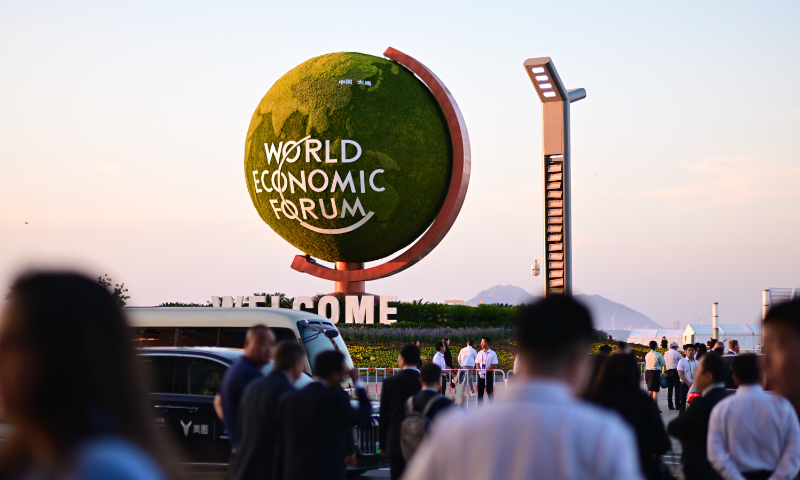
Photo taken on June 26, 2024 in Dalian, Northeast China's Liaoning Province shows the venue of the 2024 Summer Davos. Photo: Tao Mingyang/GT
Officials and business leaders at this year's Summer Davos in Dalian in Northeast China's Liaoning Province have highlighted the importance of free and fair trade. They underscored the necessity of cooperation in the electric vehicle (EV) sector for green transformation, and voiced strong opposition to trade barriers.
Their remarks were part of an ongoing international discourse addressing the recent decision by the US and the EU to impose additional tariffs on Chinese-produced EVs. This protectionist move has raised concerns about a potential setback to global efforts in fighting against climate change and its disruption to global trade norms.
Featuring the theme "Next Frontiers for Growth," the Summit Davos, held from June 25 to 27, is gathering some 1,600 leading figures from the public and private sectors across nearly 80 countries and regions to jointly explore new drivers and pathways for global economic growth, the Xinhua News Agency reported.
Speaking at the 2024 Summer Davos meeting on Wednesday, Wan Gang, president of the China Association for Science and Technology, said that the EU's decision to impose trade barriers targeting Chinese EVs is politically motivated, and that many countries within the EU have expressed opposition to the move.
"It is now necessary to conduct consultation on the development of the global economy, and take the opportunity to continue to negotiate on China-EU Comprehensive Agreement on Investment," Wan said.
Wan said "EV represents a trend of development and this trend is unstoppable. We should firmly follow this path and not slow down."
Data from the China Association of Automobile Manufacturers reveals that in 2023, output of China's new-energy vehicles reached 9.587 million units. Wan said that this year, China's EV output is expected to exceed 10 million vehicles, a new record high.
Wan's observation on the foreseeable global development trend within the EV sector was echoed by many other participants of the top international economic forum.
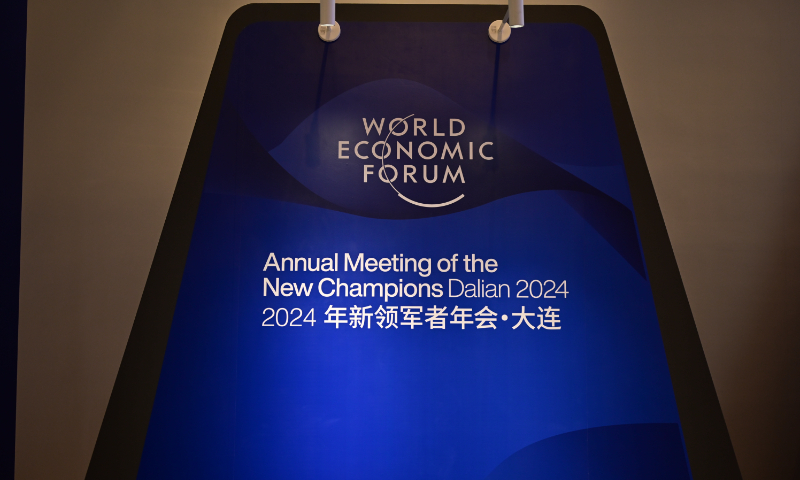
Photo taken on June 26, 2024 in Dalian, Northeast China's Liaoning Province shows the venue of the 2024 Summer Davos. Photo: Tao Mingyang/GT
In an interview with the Global Times at the Summer Davos, Sandiaga Salahuddin Uno, Minister of Tourism and Creative Economy of Indonesia, offered high praise for Chinese EVs.Currently, EV prices in Indonesia are quite high, but some Chinese manufacturers have already begun distributing EVs here, Uno said, indicating a possible reduction on prices with the participation of Chinese players.
Responding to US-led attempts to impose additional tariffs on Chinese EVs, the Indonesian minister said that "I believe having more cooperation, rather than closing off trade, will benefit consumers. For Indonesia, our goal should be to attract more investments and implement policies that encourage job creation."
Niklas Gustafsson, head of Public Policy and Regulatory Affairs with Volvo Group, said at a penal discussion on Wednesday that "we believe in free and fair trade all over the world."
Volvo Group can only sell a small portion of its turnover in its home country - Sweden, because it is a small country, but "we are presenting at 190 markets around the world including in China," Gustafsson said, giving example of how the car company needs global free trade for win-win development.
Jonathan Krane, CEO of Krane Funds Advisors, a US asset management company expressed strong opposition to trade barriers in an interview with the Global Times on Wednesday at the meeting in Dalian. He emphasized that extra tariffs hinder the global adoption of EVs for green transformation.
Krane's company helps global investors access China and they also have products including climate investment.
"Chinese EV companies have the advantages when it comes to cost-effectiveness," said Krane, giving examples of how the good technology and complete supply chain of Chinese carmakers enable to keep the cost per unit down.
Responding to the US-led decision to impose additional tariffs on Chinese EVs, Krane said that "it's very political, and I think probably too much."
"We have to cooperate and understand that there are certain areas like climate that need a lot of focus and cooperation because it is an issue that affects every country around the world," Krane said.
Yao Yang, Professor of Economics at the National School of Development and Director of China Center for Economic Research, Peking University, said during a panel discussion that China's industrial policy on EVs has been a great success.
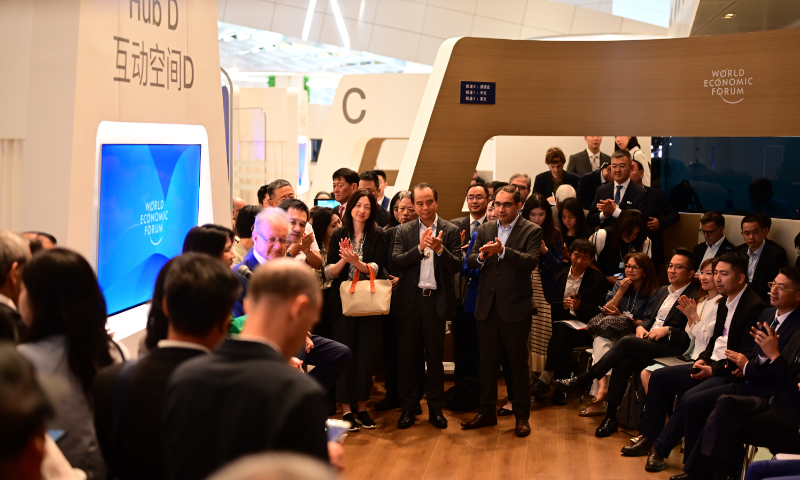
Audiences applaud at the end of a panel discussion during the 15th Annual Meeting of the New Champions, also known as the Summer Davos, on June 26, 2024. Photo: Tao Mingyang/GT
Yao noted that the extra tariffs will not prevent Chinese EVs from entering European markets because China has cost advantage, with vehicles often being between 30 to 50 percent cheaper than others on the market.